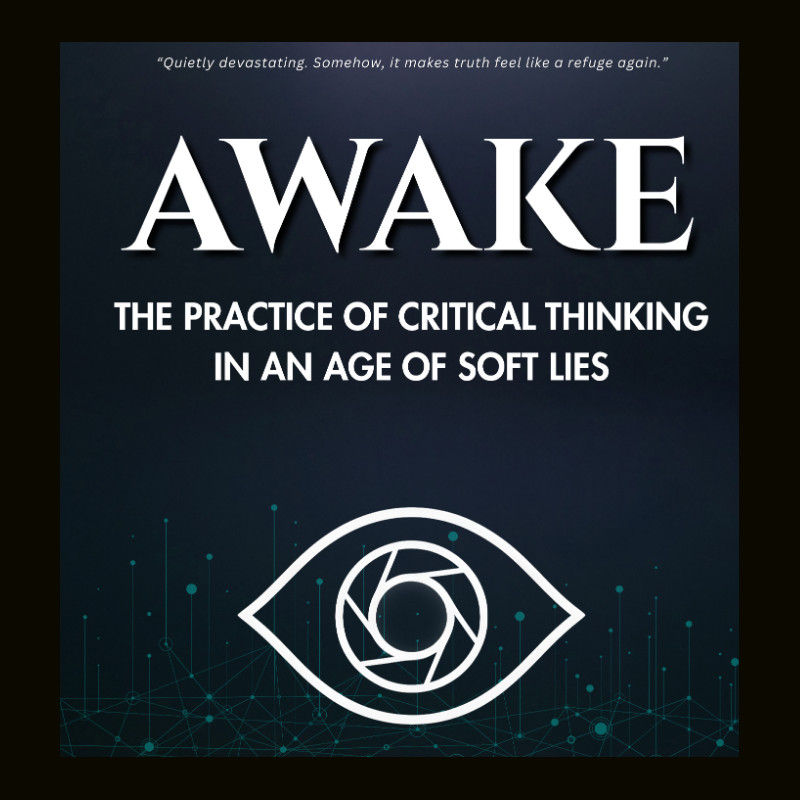Good Thinking
- Terry Wigmore
- Jul 12, 2022
- 4 min read
I just finished reading "Good Thinking" by David Robert Grimes and in the book, Grimes suggests that one way, if not the only way, to find our way back to agreed upon real facts, when so many argue that they have the real truth even when it is completely the opposite of what you believe, is to be equipped with sound logic, problem-solving skills, and a healthy dose of skepticism. Without these tools as part of our individual skill set, polarizing claims will continue to sway some and continue to entice us with rabbit holes that are difficult to extricate ourselves from. If we are motivated to become part of small groups who share similar ideas, we will likely find the rabbit holes more and more comforting and cozy, spending more and more time listening and watching information that simply keeps affirming, not challenging, what we already believe. And this is where we find the US, Canada, and most of the world - at a place where propaganda is portrayed as reality, and many are wandering to polarized views of what is true, and believable.
I found this summary of the book to be an accurate depiction of the author's motivation and goal in writing the book, so I will start here:
"Scientist David Robert Grimes is on a mission to expose the logical fallacies and cognitive biases that drive our discourse on a dizzying array of topics-from vaccination to abortion, 9/11 conspiracy theories to dictatorial doublespeak, astrology to alternative medicine, and wrongful convictions to racism. But his purpose in Good Thinking isn't to shame or place blame. Rather, it's to interrogate our own assumptions-to develop our eye for the glimmer of truth in a vast sea of dubious sources-in short, to think critically." (source:https://www.amazon.ca/Good-Thinking-Flawed-Logic-Critical/dp/1615197931)
As I try to write my own book, critical of the Evangelical church community and its embrace of Trump, specifically, and conspiracy theories in general, while claiming to follow the authority of the bible, Grimes' book offered considerable historical evidence to support his assertion that logical fallacies, confirmation bias, the use of Social Media as a primary source of news and a host of other problems, result when "Good Thinking" is in short supply, especially among those who claim unwavering adherence to religious dogmas.
Some of the topics covered in the book are contentious - Grimes claims that our fear of nuclear "accidents" such as Chernobyl, or Three Mile Island, keep us from developing energy solutions that would help put most countries on an achievable path to eradicating fossil fuel use. He goes on to explore the history of vaccine aversion or hesitancy, especially the hysteria rooted in the history of the false claim of a causal link between growing rates of autism in the early 20th century and the introduction of Measles-Mumps-Rubella vaccine, wrongly concluding "my body -my choice" is the safest choice when confronting disease treatment, and a pandemic.
Some of the ideas Grimes' examines are more obviously errors in logic and are easy for us to nod in agreement with. For instance, Grimes spends a lot of time explaining the link between religious ideas and the ever-present belief in the Flat-Earth theory (among a host of other false beliefs derived from claims of divine revelation rather than the scientific method and observation). Through a re-telling of the famous debate and wager between Alfred Russell Wallace (of the British Academy of Science) and a wealthy religious zealot, to prove the curvature of the earth, Grimes paints a general picture of how these conflicting ideas became a culture war of 1870, and it was a lesson of how entrenched beliefs are so intransigent, it is an arduous and consuming, if not relentless process to overturn them once they are widespread.
The attraction for me, in Grimes' approach to contentious ideas that border on the craziness of conspiracy, is the way he lays out the details of timelines of the narratives, and how, often before ideas can be fact-checked, peer-reviewed, falsified, and cross-examined, false ideas get spread widely and become widely believed, without sufficient evidence. Humans are prone for connecting dots that are not causal in nature and perceiving patterns (apophenia - e.g. the face on Mars) where there are none. To think logically, and skeptically requires a constant input of contrary views and evidence so that we can check our ideas, especially ones we have embraced and are dear to who we perceive ourselves to be. As Bertrand Russell once said, "So long as men are not trained to withhold judgment in the absence of evidence, they will be led astray by cocksure prophets, and it is likely that their leaders will be either ignorant fanatics, or dishonest charlatans. To endure uncertainty is difficult, but so are most of the other virtues."
It is in the constant exposure to conflicting ideas and evidence that we clarify our own beliefs with a critical mind. A healthy dose of skepticism keeps many pitfalls of spurious beliefs at bay.






Comments